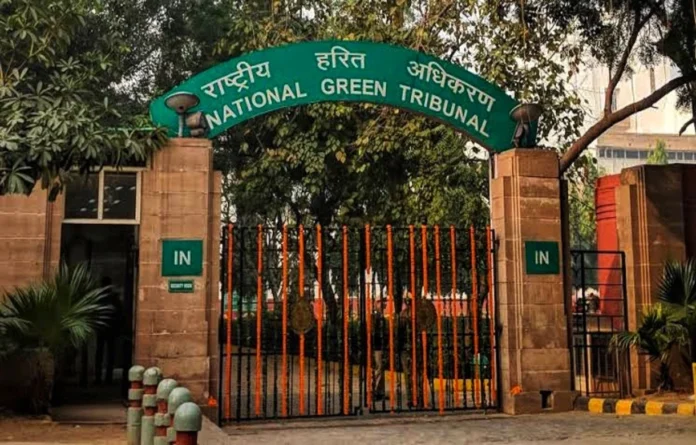The National Green Tribunal (NGT) has taken suo motu cognizance of a study conducted by the KSKV Kachchh University in Gujarat, assessing the suitability of different areas within the Banni grasslands in Kachchh district, Gujarat, for sustainable restoration.
The petition is registered suo motu on the basis of a news item dated 20.08.2024.
As per the article, grasslands are among the largest ecosystems in the world. They are distributed mainly in semi-arid and arid areas and include savannahs, grassy shrublands, and open grassland. These ecosystems provide various tangible and intangible benefits, including essential services such as carbon storage, climate mitigation, and pollination.
In India, grasslands cover around 800,000 sq. km, making up about 24% of the country’s total land area (3.28 million sq. km). However, like other forms of biodiversity, grasslands are threatened by degradation due to deforestation, overgrazing, agriculture, urbanisation, and other natural and human-induced factors. It is estimated that around 49% of global grassland areas are currently experiencing degradation.
The news item highlights that the Kachchh district in Gujarat, known for its extensive grasslands called ‘Banni’, has seen a reduction in area from approximately 3,800 sq. km to about 2,600 sq. km. As per the study, researchers categorised the Banni grassland restoration zones into five levels of suitability and found, 36% of the area “highly suitable,” 28% “suitable,” 27% “moderately suitable,” 7% “marginally suitable,” and 2% “not suitable.” It was concluded that “highly suitable” and “suitable” zones, which make up nearly two-thirds of the grasslands, can be easily restored with adequate water sources. The “moderately suitable” zone also has potential for expansion, while the “marginally suitable” and “not suitable” zones can be managed with interventions like terracing and fertilizers.
The news item alleges that previous studies on the Banni grasslands often relied on single vegetation indicators like net primary productivity (NPP) and the normalized difference vegetation index (NDVI), neglecting soil characteristics, which affected the accuracy of their assessments. The current study addressed this gap by analyzing multiple soil characteristics, including essential nutrients and micronutrients, soil acidity, texture, organic carbon, salinity, water holding capacity, cation exchange capacity, bulk density, and infiltration rate. They also used satellite data to examine land use, land cover, geomorphology, and land slope, analyzing a total of 20 parameters. This comprehensive approach aims to identify suitable lands for grassland development and ensure sustainable management. It claims that the study on the Banni grassland involved collecting soil samples from 45 locations and using data from the U.S. Sentinel 2 satellite and ASTER for geomorphologic analyses.
The news item states that grasslands have great importance in carbon dioxide sequestration and climate change mitigation. Moreover, many bird species, like the great Indian bustard and the Bengal florican, rely on grasslands for breeding.
The article stresses on the urgent need for government and stakeholders to conserve these shrinking habitats to protect biodiversity and ecosystem services for future generations.
The above news item indicated Bench the violation of the provisions of the Forest Conservation Act, 1980; Biodiversity Act and the Environment Protection Act, 1986.
The news item raises substantial issue relating to compliance with environmental norms and implementation of the provisions of scheduled enactment.
“Power of the Tribunal to take up the matter in suo-motu exercise of power has been recognized by the Hon’ble Supreme Court in the matter of “Municipal Corporation of Greater Mumbai vs. Ankita Sinha & Ors.” reported in 2021 SCC Online SC 897.”
Hence, the Principal Bench of Justice Prakash Shrivastava, Justice Arun Kumar Tyagi and Dr. A. Senthil Vel impleaded the following as respondents in the matter:
i. Principal Chief Conservator of Forest.
ii. Ministry of Environment and Forest.
iii. District Magistrate, Kutch
The Bench issued notice to the Respondents.
Since the matter relates to the Western Zonal Bench, Pune, therefore, the Bench transferred the matter to the Western Zonal Bench for appropriate further action.Office is directed by the NGT to transfer the original record to the Western Zonal Bench and the matter is listed on 01.10.2024.


